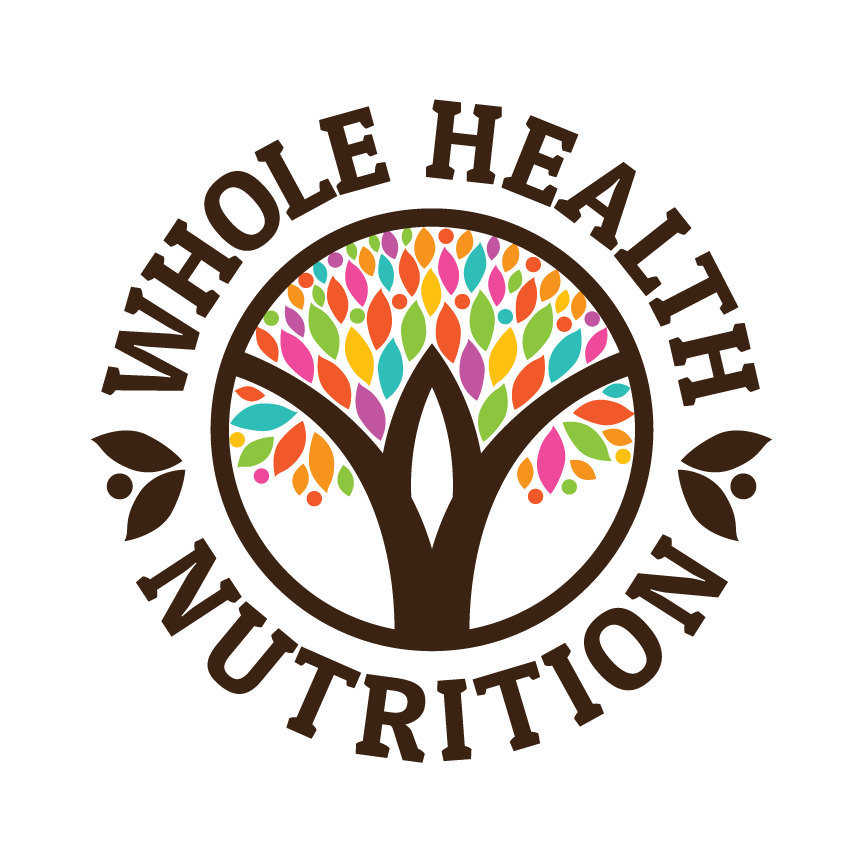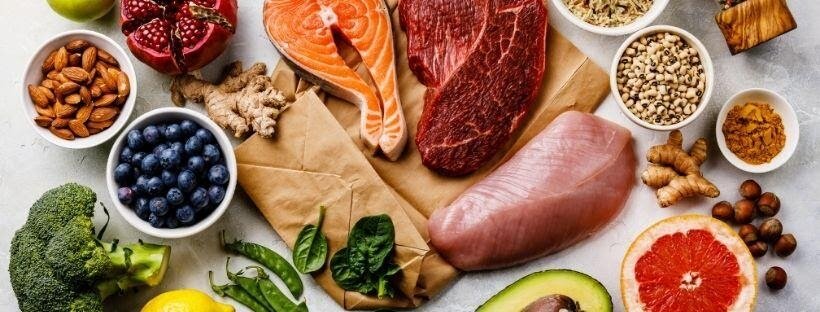Stress & Diet
What is Stress?
The definition of stress is a state of mental or emotional strain or tension resulting from adverse or very demanding circumstances. All humans have some level of stress, even the healthiest of individuals. Not all stress is bad. In fact, stress can motivate us or make us pay more attention to something that needs it most. Even oxidative stress in the body is part of the natural process that creates energy. This process if known as metabolism.
Excess chronic stress can lead to things like anxiety, depression and obesity as well as high blood pressure, high cholesterol, IBS, other inflammatory related diseases, neurodegenerative diseases like Alzheimer’s, several Cancers and even Type II Diabetes. When it comes to decreasing overall stress and inflammation in the body, factors such as duration and quality of sleep, exercise, meditation, laughter and more are important, but it all begins with nutrition.
Hormones Worth Mentioning
Before diving into the “goods and bads” of diet related to oxidative stress, let’s start with two hormones that are frequently mentioned when it comes to stress: Serotonin and Cortisol. Of course, there are more hormones related to managing oxidative stress but these two are often the first to be mentioned.
SEROTONIN: this hormone is known as the feel-good hormone.” It is a naturally occurring substance that acts a neurotransmitter to help regulate mood, behavior, memory, sleep and digestion. Although serotonin is made in the brain, approximately 90% of the serotonin found in the human body resides in our small intestine.
CORTISOL: secreted by the adrenal glands (located on top of each kidney) in response to stress that helps to increase blood glucose availability. This, what we call, “Flight or Fight” response is not always a bad thing in sticky situations like if we are in danger and need energy fast. But if our bodies are in chronic stress and have constant elevated cortisol levels, this may lead to weight gain, disrupted sleep, poor mood, and even high blood pressure and diabetes.
Key Nutrients Linked to Decreasing Overall Stress
WATER: Hydration is key to helping our bodies manage stress. Proper hydration can help our bodies regulate cortisol levels as well as accomplish other bodily functions such as temperature regulation and digestion. Dehydration increases cortisol. Aim to drink at least 8-10 cups of plain water daily.
PROTEIN: Protein makes up the structural material in the body including muscles, bone and ligaments. Hormones are also made of protein, including the hormones associated with decreasing oxidative stress. Protein also helps to increase satiety and regulates blood sugar levels which can help to alleviate stress by preventing us from overeating. Foods high in protein include lean meat, poultry, fish, eggs, dairy, nut/seeds, and legumes.
HEALTHY FATS: Consuming a fat source at each meal can help our bodies regulate blood glucose (BG) levels which can prevent cortisol spikes. Also, incorporating a fat source at dinner time or at a bedtime snack can help with BG control overnight, helping to improve sleep and our body’s natural ability to fight stress. Omega-3 fatty acids (specifically DHA and EPA found in foods such as salmon, trout, sardines, mackerel, and tuna) are linked to decreased inflammation. There are also planted based sources of omega-3 fatty acids such as flax seed, chia seeds, and walnuts, although these are much less bioavailable.
FIBER: Fiber is a type of carb but worth mentioning on its own. Both soluble and insoluble fiber help to feed the probiotics (good gut bacteria) in our intestines thus maintaining a healthy gut microbiome. Keep in mind that a variety of fruits and vegetables will feed a diverse group of healthy gut bacteria. This bacterial diversity is associated with the best digestion and overall health. A diet low in fiber (a.k.a. prebiotics) can starve the good bacteria (a.k.a. probiotics) leading to nutrient deficiencies and a weakened immune system.
ANTIOXIDANTS: Antioxidants are substances that inhibit oxidation and help us to fight, prevent and repair damage done by oxidative stress. Most antioxidants are found in plant-based foods (although zinc and selenium are found in animal sources). By simply increasing your intake of fruits and veggies, you’ll be increasing these powerful, free-radical-fighting antioxidants:
Vitamin C: found in most fruits and veggies including broccoli, bell peppers, citrus fruits, strawberries and kiwi to name a few.
Carotenoids (including beta-carotene and lycopene): cantaloupe, carrots, sweet potatoes, bell peppers, beets, tomatoes, mango, pumpkin, grapefruit and many more.
Vitamin E: Avocado, almonds, peanuts, sunflower seeds, spinach, swiss chard, and other leafy greens.
Quercetin: apples, onions, red wine.
Selenium: fish, beef, poultry, barley, Brazil nuts and brown rice.
Zinc: Oysters, shrimp, beef, poultry, chickpeas, lentils, cashews and pumpkin seeds.
MAGNESIUM: Magnesium is involved hundreds of enzymatic reactions in the body including muscle contraction and insulin production Studies show that it can improve mood and enhance sleep. It can also decrease the release of cortisol levels. Magnesium deficiency is related to many stress-related diseases including heart attacks and high blood pressure. Foods high in magnesium include nuts, seeds, leafy greens, avocado, legumes and dark chocolate.
PROBIOTICS: Our gut and brain connected in more ways than we know. Their relationship is a two-way street. Our mental stress and anxiety can impact gut health, while gut health and having a plethora and variety of probiotics is linked to decreased inflammation. In fact, the majority of the hormone serotonin is found in the gut, making the health of our digestive tract even more important when looking to minimize stress. Probiotics, or healthy bacteria residing in your gut, thrive when we eat a diet high in fiber. Consuming probiotic rich foods (fermented foods) can help increase the variety and overall population of gut bacteria.
Fermented Foods (rich in probiotics) include the following:
Kimchi
Kefir
Sauerkraut
Kombucha
Tempeh
Miso
Yogurt
Foods to Avoid to Lower Overall Stress Levels
Yes, there are foods that are more pro-inflammatory than others, and yes, we should try to minimize them whenever we can, but when it comes to diet, moderation is key. We don’t have to eat perfectly to reduce inflammation and contrarily, limiting the foods listed below will help to minimize oxidative stress but won’t completely eliminate it.
ADDED SUGAR/PROCESSED CARBS: Consuming foods that are high in refined sugar and carbohydrates like soda, candy, white bread, processed pastries and sweets, sweetened yogurts, some plant-based milks and even some so-called “healthy” cereals can cause surges in blood glucose levels. Foods like these with a high glycemic index can cause cortisol levels to rise. Excess added sugars can also lead to an increase in harmful bacteria and toxins in the gut which can also lead to an increase in stress hormones and oxidative stress, as well as a leaky gut which can create an autoimmune response further stressing the body.
REFINED OILS: Refined oils such as soybean, cottonseed, corn and canola oil have been linked to increased inflammation. Also excess saturated fat specifically from animal foods as well as trans fat (hydrogenated oils) are linked to increased inflammation and increased risk for heart disease. Instead, choose less refined oils like cold-pressed or expeller pressed olive oil, avocado oil and coconut oil.
ALCOHOL: Although moderate alcohol consumption is thought to relieve stress in the short term, it’s overconsumption can lead to increase inflammation and stress in the body. Excess alcohol consumption can destroy healthy gut microflora and cause inflammation in the gut. Chronic alcohol use also impairs liver function which can delay its ability to process other toxins. This can lead to overall systematic inflammation.
CAFFEINE: Caffeine is a stimulant found in coffee, tea and chocolate. Its consumption can lead to an increase in cortisol levels. Many Americans consume more than the recommended limit of caffeine per day (400mg, equivalent to about 4 cups of home brewed coffee). What’s even more interesting is that our cortisol levels are naturally at their highest in the morning and this is when we usually drink our beloved beverage. In fact, we can’t start our day without it. But ideally, we would wait to drink our coffee when our levels of cortisol are a bit lower, about 2-4 hours after waking, and after we’ve eaten a full breakfast. This can help prevent cortisol spikes. Also, too much caffeine can lead to dehydration since it is a diuretic.



